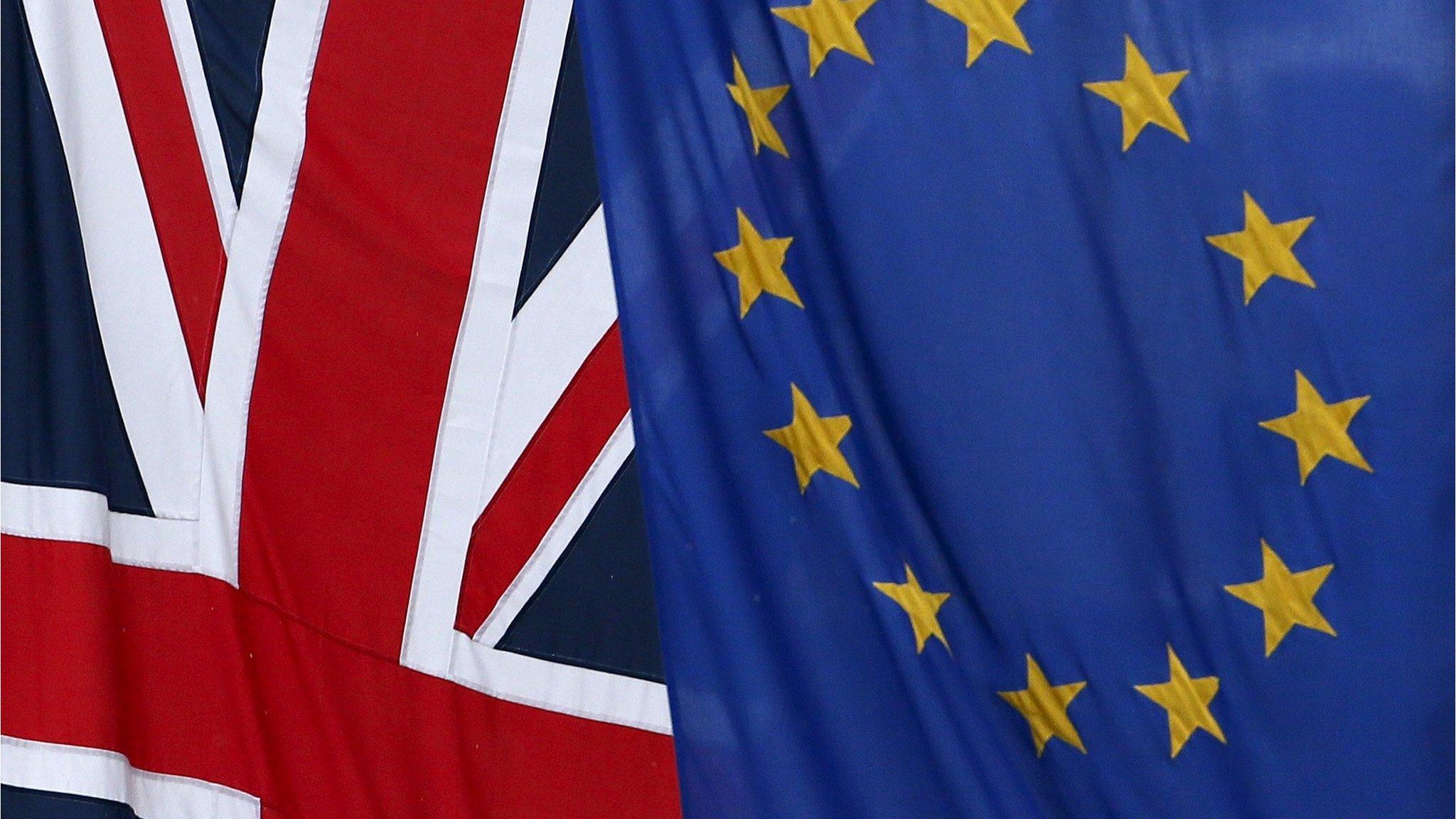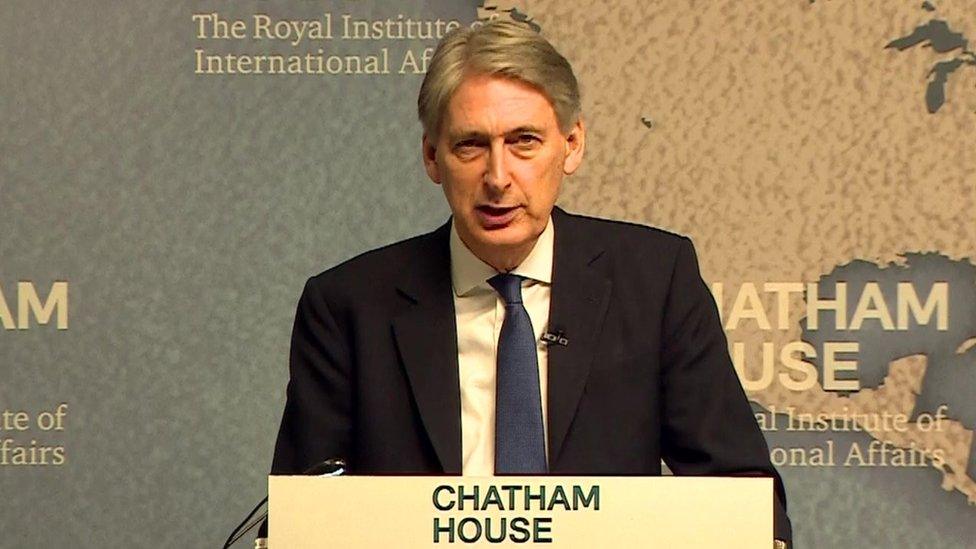EU referendum: Lord Rose clashes with MPs over statistics
- Published
Pro-EU campaign boss in clash with Conservative MP
Lord Rose, the former Marks & Spencer boss who heads the pro-EU campaign group Britain Stronger In Europe, has been accused of a "scandalous misuse of data" as he appeared before MPs.
Tory MP Andrew Tyrie claimed the organisation was presenting as fact CBI figures which estimate the benefits of being in the EU are worth £3,000 a year to the average UK household.
He said the data was an "inference".
Lord Rose hit back, accusing the MP of "calling my reputation into question".
Appearing before the Treasury Select Committee, the former retailer said he stood by the figure and separate calculations produced by the CBI that estimate that EU membership benefits the UK economy to the tune of about 4-5% of output.
'Misleading'
During heated exchanges, Mr Tyrie said the figures were being given far greater weight and prominence than they deserved by the In campaign.
"You're leading the campaign with this number - it's one of the most important components to your case," he said.
"Economists have told us it is intellectually dishonest to persist with these claims. Don't you think you should take this back - and see if for the next four months we can have a campaigned based on something more reliable? Don't you think we owe the public something more reliable?"
Lord Rose asked whether workers' wages would rise after EU exit?
Lord Rose suggested the MP had "impugned his integrity" and said his 45 years in business had given him first-hand knowledge of the subject of EU membership.
"I have worked in Europe, I have lived in Europe. I have imported to Europe, I have exported to Europe. I have hired people in Europe. I have fired people in Europe. I know Europe pretty well."
He added: "We will never arrive on a number we agree on... whatever the number is... there is a benefit that accrues from being in the EU."
The Conservative peer has also been criticised by Out campaigners after appearing to question whether an increase in wages for low-skilled workers would be a good thing.
Labour MP Wes Streeting asked Lord Rose whether "if free movement was to end after Brexit, isn't it reasonable to suppose we could see increases in wages for low-skilled workers in the UK just off the back of the economic impact of free movement on wages?"
Lord Rose replied: "If you are short of labour, the price of labour will go up. So yes, but that is not necessarily a good thing."
'Careful'
The Leave.EU campaign said the remark was representative of "Brussels' cheerleaders" wanting to "protect vested interests, not the public interest".
"Lord Rose isn't wrong to say that ending this exploitative system would 'not necessarily be a good thing' for the unscrupulous bosses and privileged elites who take advantage of it," a spokesman said.
"But for workers who would find themselves able to command a higher price for their labour, with rights which don't only exist on paper, it would be a very good thing indeed."
Sitting alongside Lord Rose during the hearing, the director of Britain Stronger in Europe Will Straw told MPs that he was satisfied with the statistics being used by his campaign and had checked with the CBI "to make sure the number is accurate".
"We're saying it's the average benefit to households and it outweighs the costs," he said. "I understand people will challenge it... we are satisfied the figure we are using is a central estimate of what the contribution of being in the EU is over a 40 year period.
"We have never claimed the cost of leaving would be equivalent to £3,000 per household per year. This is a series of studies looking backwards on the benefit of being in the EU since we joined in 1973. It is much more uncertain what the costs would be if we were to leave which is why we're been very careful about that."
- Published18 February 2016

- Published2 March 2016

- Published22 February 2016
